Find out how to change the world one stitch at a time!
Coined in 2003 by writer Besty Greer, craftivism is a term used to describe the union of crafts and activism. It requires a thoughtful, empathetic and patient approach to creative activities. For true craftivists, every project has a clear purpose and a deep meaning. From Tunnizze Creation’s efforts to inspire a new generation to Maya Bing’s determination to run an ethical yarn shop, there is so much incredible work going on in the crafting world right now. Read on to learn more about what your fellow knitters and crafters are doing to make a difference!
Find inspiration with this fabulous interview:
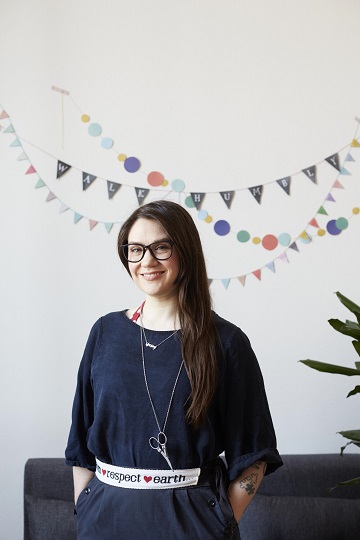
Creative, intelligent and compassionate, author and activist Sarah Corbett is ideally suited to the craftivist cause. We caught up with her to explore her inspiring outlook and unusual projects:
“In the first chapter of my latest book How to be a Craftivist I talk about what craftivism is. The word activism is in craftivism, and that doesn’t mean donating or fundraising. Instead, it’s about trying to change structures, systems, behaviours or cultures, so that you cure the social injustice problem from the roots up. I think it’s important that we don’t just say we’re craftivists. We’re activists that sometimes use crafts. I still go on some marches that have a clear goal and are making people accountable. I also attend meetings that don’t involve crafts and have plenty of difficult conversations. I call my own projects gentle protests. I didn’t coin the word craftivism and I’m quite clear that what we do is gentle protesting. Activism is a priority, but everything we do is gentle – not weak, but emotionally intelligent and strategic.
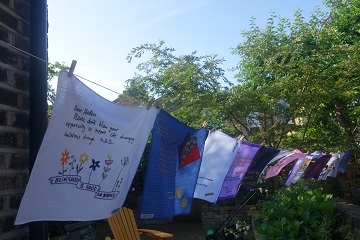
A powerful example of a gentle protest was when I collaborated with ShareAction: a registered charity who promote smart investing. My plan was to go above the retailer’s CEO and to connect with the board members instead. There were 14 board members, so I found 14 craftivists who matched the store’s demographic. The craftivists then made bespoke handkerchiefs using the company’s own products. Each handkerchief was personalised to reflect the chosen board member’s favourite
colours and passions. There was also an embroidered message of encouragement. The finished hankies were then placed alongside a handwritten letter that outlined the benefits of paying the living wage. We handed the project in and that immediately secured us an interview. Ultimately, this gentle protest led to a pay increase for 50,000 staff, which was huge.

Another gentle protest involves using paper crafts to combat fast fashion. We create mini scrolls that are dropped into the pockets of clothes from stores that need to be more ethical. On each scroll, gentle protesters use their neatest hand writing to ask questions like “who made your clothes” or “what’s the story behind this item?”. Our aim is to engage customers and fashion lovers in a non-judgemental way. I’ve been doing this for ten years because crafts can make the world a better place. I’m proud to say that we’ve changed laws and business policies, hearts and minds. However, craftivism is more than just fun; it’s fulfilling and that’s a big part of the work.”
Update your bookshelf with this brilliant collection of titles:
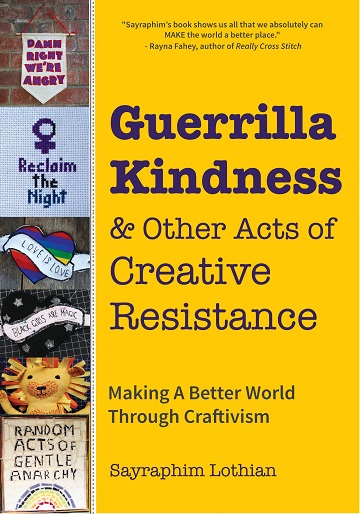
“My advice to you is just go out and do it. Don’t wait for permission or to find someone else or a group to do it with. If you have the urge, go out and create, go out and make, go out and do! Change so often starts at a grassroots level, which is people in their houses and people on the street.”
Taken from Guerrilla Kindness and Other Acts of Creative Resistance, Sayraphim Lothian, Mango Publishing Group, £19.99, available from amazon.co.uk
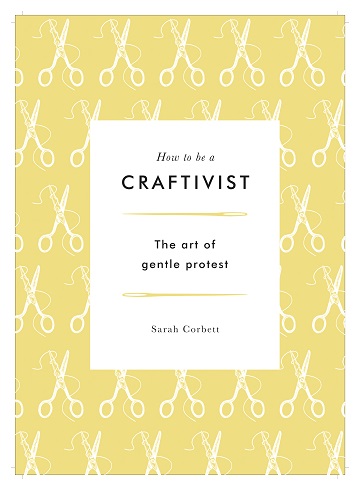
“If you want to do it well, craftivism isn’t fast and easy. I often refer to our work as ‘slow and mindful’ activism. Injustices tend to be complex tapestries with no quick fix or one individual to blame. They can involve many problems woven together that we need to address in different ways.”
Taken from How to be a Craftivist, Sarah Corbett, Unbound, £12.99, available from craftivist-collective.com
.jpg)
“At its core, slow knitting is a celebration of craftsmanshipthe time spent making an object is just as important as the object itself…Letting your materials dictate your pattern and not vice versa, allows you to be more thoughtful about your projects and how you use your time. It’s about asking for the story behind the fiber you’re buying and making choices based on what you’re told.”
Taken from Slow Knitting, Hannah Thiessen, Abrams, £21.99, available from amazon.co.uk
Show your support for Tunnizze Creation
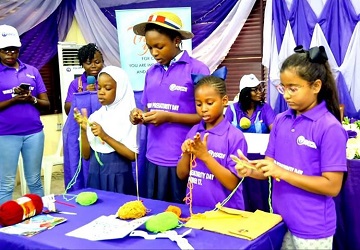
Based in Lagos, Nigeria, Tunnizze Creation are a passionate group of knitting and crochet teachers. Their mission is to help the younger generation by encouraging them to think with the use of their hands. Six years ago they discovered that Nigeria has the highest number of preterm births in Africa and the third largest in the world. Consequently, they arranged for the Abiye Maternal Children Foundation to donate their handmade baby hats across Nigeria. On World Prematurity Day 2018, 155 knitted hats were donated on behalf of the school children of Lagos, Abuja and Kaduna. You can find the group on Facebook, Twitter and Instagram.
Shop Smart at Knit with attitude
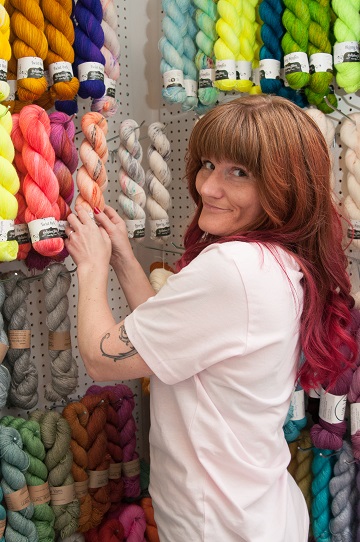
Maya Lin Bang runs an independent knitting shop in North London. Aptly named Knit with attitude, Maya’s store specialises in ethical, eco-friendly and sustainable yarn. Here are just some of her thoughts on Crafitivism. “To knit is to communicate, to make a statement. I strongly believe that each knitted piece is a statement of the person who made it; what thoughts, ideas and choices lie behind its creation. The desire to express something I feel very passionate about through my love of knitting was what spurred me into setting up my shop Knit with attitude nearly nine years ago.

Knitting is often seen as a benign, passive and (predominantly female) domestic pasttime. By subverting these stereotypes, activists are making knitting a useful tool for peaceful, proactive and political protest. Political action has long roots throughout the history of knitting. From the American Revolution in the 1760s, throughout the abolition and women’s suffrage movements, to what we are seeing today with the #pussyhat project and #metoo campaign – knitting is a powerful symbol of activism. If you want to make a difference with your knitting, choose materials that are ethical and sustainably produced. Be aware of animal cruelty and workers’ conditions and tell people about the choices you make. If you feel the need to express something you feel strongly about, choose the medium that makes you excited about what you are trying to say. If this happens to be knitting – great – just do it!” Visit knitwithattitude.com/shop
Pick up your needles and make a difference

If you have been inspired to embrace craftivism, you could begin your journey by knitting this tiny heart brooch. The pattern is quick, easy and available on the Let’s Knit website. Once completed, you will be able to wear your brooch throughout February in support of The Climate Coalition’s #showthelove campaign. This could be a brilliant opportunity for you to highlight the things you love about the planet and would miss if more isn’t done to protect it. Why not knit green hearts for everyone you know? You could even share your project via social media and tag your local MP.
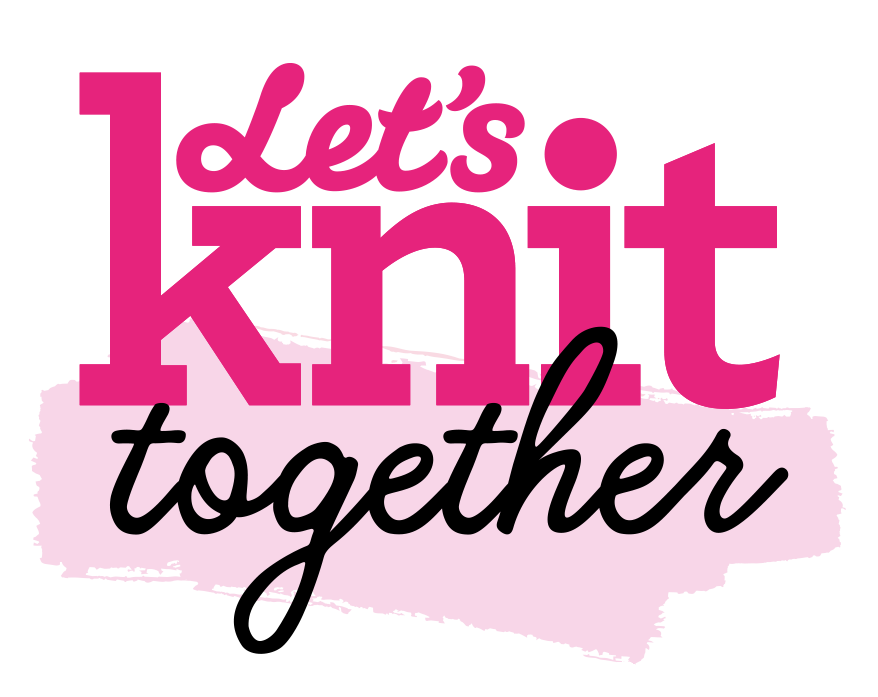

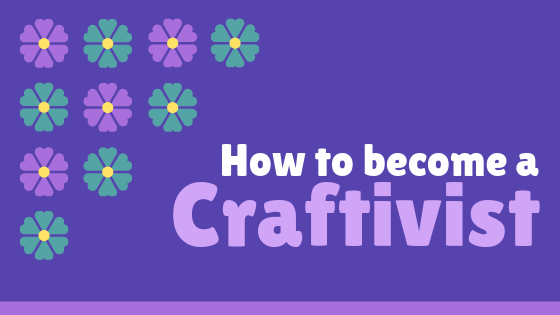


_333_180_c1.png)

_Craftihive_Let_s_Knit_Website_Blog_-_7.9.25_HEADER_IMAGE-01__333_180_64_c1.jpg)

 Baby
Baby
 Toys
Toys
 Garments
Garments
 Crochet
Crochet
 Homewares
Homewares
 Dolls
Dolls



Share